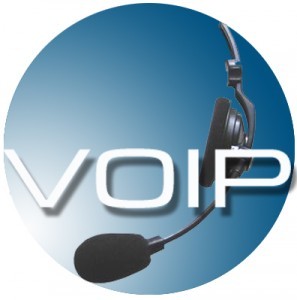Both Kansas and Nebraska are seeking relief from a 2004 Federal Communications Commission (FCC) rule prohibiting the states from taxing voice-over-Internet protocol (VoIP) service providers.
Communication regulators from both states have asked the FCC to refrain from intervening should Kansas and Nebraska impose universal service charges on VoIP.
The states’ attempts to change the 2004 precedent are being challenged by a coalition of technology organizations, who recommend the FCC go slow in deciding whether to approve Nebraska’s and Kansas’s requests. They state VoIP technology is “inherently interstate in nature,” meaning states cannot tax it, and that was the core of the 2004 rule.
Difficult Tax to Implement
Sascha Meinrath, a technology expert at the New America Foundation in Washington, DC, says the proposed Nebraska and Kansas taxes will be difficult to implement because U.S companies will start bundling VoIP services to avoid the tax.
“Assessing taxes on VoIP services would be exceedingly difficult to do without a unified regulatory framework for overseeing all [packet-switched] telecommunications services,” Meinrath said. “Otherwise, it’s like playing policy three card Monte where everyone will bundle VoIP with another [tax-exempt] service and claim that the service is anything but VoIP.”
Mark O’Connor, a lawyer at Lampert, O’Connor & Johnston, P.C., a Washington, DC-based law firm specializing in communications, Internet, new media, and technology matters, says the FCC is likely to grant the request, but he stresses the outcome of letting states tax VoIP will be higher taxes.
“I think that the proposition is being actively considered, and, in fact, an order is being circulated now to essentially grant [Kansas’s and Nebraska’s] petition and to apply the universal service fund obligations [taxes] to VoIP,” O’Connor said. “And there is also a fair amount of concern among VoIP companies that the FCC might also apply universal service fund obligations prospectively and retroactively.”
‘Taxing Structure Obsolete’
Meinrath said it would be better to create a more indirect taxation system instead of a tax on VoIP.
“I think it would be extremely difficult to charge for VoIP. A far more logical solution would be to tax broadband connectivity itself, not specific applications or services that run over these data networks. Siloized thinking that different services can somehow be discretely defined—and thus taxed—needs to catch up with the technological reality that convergence [of services] has made this sort of taxing structure obsolete,” Meinrath explains.
O’Connor agrees it will be very difficullt to tax VoIP companies even if the FCC grants the VoIP tax request.
“I guess preemption is a tricky thing. The states will have to carve out a certain portion of traffic that is intrastate by definition, since the FCC [already] charges 64.9 percent for interstate,” he said.
“I think this would have to raise prices, because most VoIP providers pass on these government costs by increasing prices to consumers. So I suspect the FCC’s decision here will raise customer prices,” O’Connor said.
Thomas Cheplick ([email protected]) writes from Cambridge, Massachusetts.





